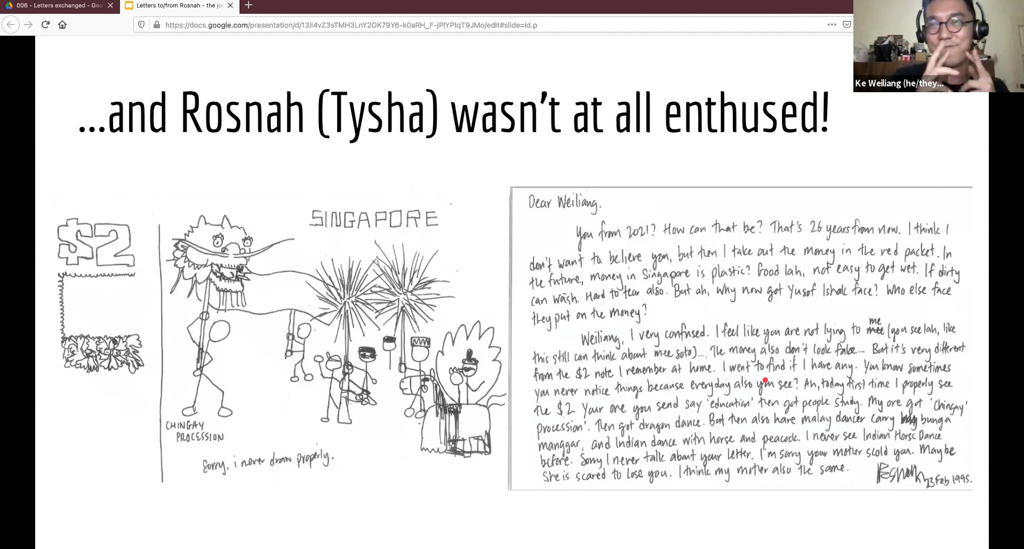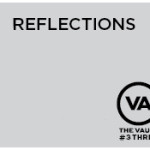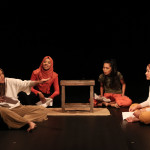
Weiliang shares a sample of a postcard exchanged with Tysha Khan who pretended to be Rosnah from 1995.
Letters to/from Rosnah is an experiment I conducted with visual/performance artist ila and actor/writer Tysha Khan, in response to Haresh Sharma’s monodrama Rosnah. For this experiment, I invited both artists to embody two different versions of Rosnah, and interacted with them over a series of letters exchanged via snail mail. While ila embodied Rosnah who time travels to the present day for x number of days, Tysha embodied Rosnah who stayed in her original 1990s universe. You may view the letters exchanged between myself and ila/Tysha here.
What did you find meaningful or generative about this exploration?
I am now convinced that there is a future for theatrical experiences to occur over scattered interactions that don’t require artists and audiences alike to gather in real-time in the same physical or digital space. Having experimented with artists who took up the challenge of embodying the titular protagonist Rosnah via letter writing, I am starting to see value in participatory work that allows audiences to take their time to respond to the stimuli being presented to them. In this case, I realised that the luxury of time is necessary for a meaningful relationship to develop between Rosnah and the audience member writing to her, and for both parties to hold space for each other.
How has your relationship with the text evolved with this residency?
Embarking on this residency has made me realise that the manner in which Rosnah is written provides so many entry points for one to craft an artistic response to the text. Having embarked on this residency, it has become apparent to me that the time capsule-like conversations that happen between Rosnah and the actor playing her encourages intergenerational dialogue about the play’s themes. Writing letters to ila’s Rosnah, for instance, led to a dialogue about what “home” means. In the context of Rosnah, the notion of “home” is more directly tied to leaving a tangible place – given that Rosnah finds leaves behind her family in Singapore to pursue undergraduate studies in London. But once ila’s Rosnah found herself in quarantine in a Stay-Home Notice hotel after time travelling to 2021, a conversation unfolded over what else “home” can mean. Can one call a place their home after just fourteen days, if a sense of familiarity arising from the routine of not being able to physically leave a hotel room has emerged?
Her response prompted me to bring up the recent news about the impending permanent closure of The Substation and whether it could live on after being displaced from its building at 45 Armenian Street. As a result, ila’s Rosnah and I are now discussing: Does “home” need to be rooted to one place? Can one’s “home” fluidly oscillate between multiple places? Or does home even need to be rooted to a place to begin with?
What was the most paradoxical or unexpected discovery you made in your process?
I now realise how much I took for granted how difficult it was to foster a relationship with a legacy character! When writing letters to Tysha’s Rosnah (who lived in the 1995 universe), I learnt the hard way that a great deal of patience is needed to help Rosnah get accustomed to what is happening in the present day. If sending Rosnah a $2 note from the present day alone is enough to leave her in a state of shock, what more when she realises the complexity of intersectionality in 2021?
Ke Weiliang, Reflections on Letter to/from Rosnah
Letters to/from Rosnah by Ke Weiliang was developed under The Vault Lite: A Whole New World in respond to Haresh Sharma’s play, Rosnah. This edition of The Vault: Lite ran from January to February 2021. Find out more about The Vault: Lite and Weiliang’s work here.





